Awareness and Action for Racial Justice: Evaluating Ourselves and Our Investments
By Daniel McNabb, CFP®, Financial Advisor
The recent killing of George Floyd and subsequent demonstrations by anti-racism activists have caught the attention of people from around the world. Freedom movements have come together in solidarity to speak out against the continued disparity in treatment of black and brown communities, both state and societally orchestrated. The systemic oppression of Black Americans, while being a constant presence in the daily lives of black communities, is just now being discussed by white communities and institutions. The cyclical patterns of outrage, discussion, forgetfulness, and complacency are being displayed as a powerful message to the world that real and lasting change does not originate from discussion, but rather from action.
Even those of us, and I am talking to the white community here, who are against racism, sexism, homophobia, transphobia, and xenophobia have become complacent with and complicit in the degradation, exploitation, and dehumanization of communities of color in this country. Despite the acknowledgement of the countless racial disparities that exist in our society, we have failed time and time again to enact meaningful change in our communities and in our world. The burden of progress has always fallen on the underserved, and the catalyst for change has always been black suffering.
As white people benefiting from a governmental system that exists quite literally to protect the “minority of the opulent from the majority,”1 we have a moral obligation to extinguish the coals of racism in our society and in ourselves. Before saying anything about an external source of racist ideology, we must first look within ourselves and confront how we benefit on a daily basis from the suffering of others. This is something that I and many in my position of privilege so often fail to do. The simple act of driving to work without the fear of being profiled by the police should remind us that there are those in our society who do not share that freedom. This self-awareness needs to become an integral part of how we make decisions, how we process information, and how we interact with our surroundings. We must listen to black leaders and to the communities for whom they advocate.
At the same time, we must take the initiative to educate ourselves and not rely on communities of color to tell us what is wrong with the power systems we perpetuate. As we work through our internal biases, we can then look outward at our impact in the world and our community. We can look at how we talk about these issues, how we communicate with our friends and families who express problematic ideas, how we vote, and how our money is made, spent, and invested.
The provenance of money is the suffering of black, brown, and indigenous peoples. There is no disputing that fact. This very country was founded on the theft of land from a native population and the subsequent enslavement of another. So, in confronting that truth, how do we change our behavior to avoid and abolish the mechanisms of slavery that exist to this day?
This very question is part of what drives our investment philosophy at Chicory Wealth. Our intent is to invest money in a way that aligns our clients’ financial impact with their moral standards. We have moved away from investing in index funds, which hold a piece of every company in a broad index, including private prisons, fossil fuel extractors, gun manufacturers, and exploitive retailers. Instead of investing across an index, we have an ever-evolving pool of individual publicly traded companies that we screen for a variety of factors. Many of our screens deal with climate change, specifically greenhouse gas emissions, but we also look at how a company treats its employees, how they source their raw materials, and how they are governed. We look at how much of a company’s revenue contributes to the green economy. We look at the policies that the companies have in place to deal with discrimination and LGBTQI+ rights. We look at data provided by NGOs such as American Friends Service Committee, Corporate Knights, Worth Rises, and others to augment company data from MSCI. This information gathering and screening process continues to evolve, as the bodies of information and available resources expand. We believe one of the hallmarks of ethical management is the constant scrutiny of processes and methodologies.
In addition to some of the more quantitative data we have compiled, we look at the qualitative aspects of a company’s operations. One of the factors we consider is whether the company’s operations contribute materially to furthering the UN sustainable development goals laid out in 2015. We believe that “impact investing” means being invested in the companies that are striving to be part of the solution, not just those that are contributing less to the problems.
Once suitable companies have been identified and purchased, the next step is using that share of ownership in a company to push for positive change. For the stocks we buy and hold for our clients, we vote the proxies, which deal with executive compensation, board diversity, and shareholder proposals. These proposals are created by shareholders and can range from linking executive pay to ESG metrics to requiring that a company publicize their lobbying expenditures. We utilize research from Trillium Asset Management, which has a robust research team and comprehensive proxy voting guidelines, to determine how to vote on many of these proxies. Those guidelines are posted on their website. We work with the shareholder activist group As You Sow to sponsor resolutions and to engage with companies with the aim of changing their operations or policies to better promote human rights.
As the number of people working on these issues continues to grow, we seek to grow with them, to be challenged by them, and to work with them to help create a more racially just, socially just, and environmentally just world. However, the public markets are just one of many arenas where a shift in behavior can have an impact. Changes in how we bank, how we donate, and how we consume are just as important as the companies we invest in.
So, what resources exist to help us shift capital toward good players?
Resources for supporting black-owned businesses:
- EatOkra is an app for finding black-owned restaurants.
- Official Black Wall Street is a directory to black-owned businesses, dedicated to the victims of the Tulsa massacre of 1921.
Resources for donating to groups that are working to fight the power structures of oppression:
- The Center for Popular Democracy
- Black Lives Matter
- The Poor People’s Campaign
- Black Futures Lab
- Black Leaders Organizing for Communities (BLOC)
- Black Organizing for Leadership & Dignity (BOLD)
- Black Voters Matter Capacity Building Institute
- Black Youth Project 100 Education Fund (BYP100)
- Black-Led Movement Fund (BLMF)
- Blackbird
- BlackOUT Collective
- Chicago Center for Leadership and Transformation
- Higher Heights Leadership Fund
- Movement for Black Lives (M4BL)
Together we can do more. Together we must do more. To our clients — we thank you for the trust you have put in us to manage your money in keeping with your values. We take this charge very seriously and will continue to work harder to allocate your resources responsibly and to maximize your impact.
- “Term of the Senate, [26 June] 1787,” Founders Online, National Archives, https://founders.archives.gov/documents/Madison/01-10-02-0044. [Original source: The Papers of James Madison, vol. 10, 27 May 1787–3 March 1788, ed. Robert A. Rutland, Charles F. Hobson, William M. E. Rachal, and Frederika J. Teute. Chicago: The University of Chicago Press, 1977, pp. 76–78.]
Photo above by Lan Nguyen of Unsplash.




